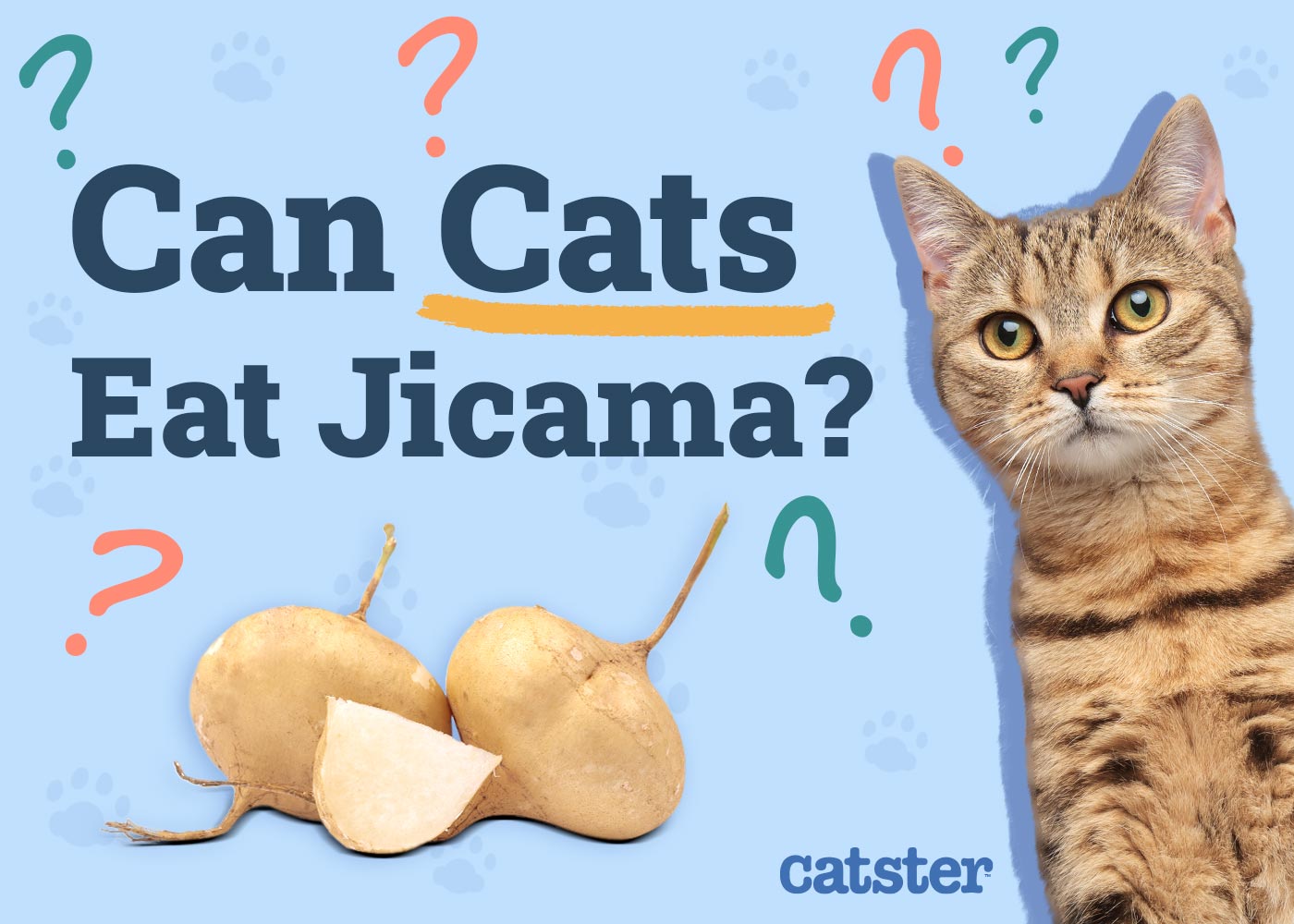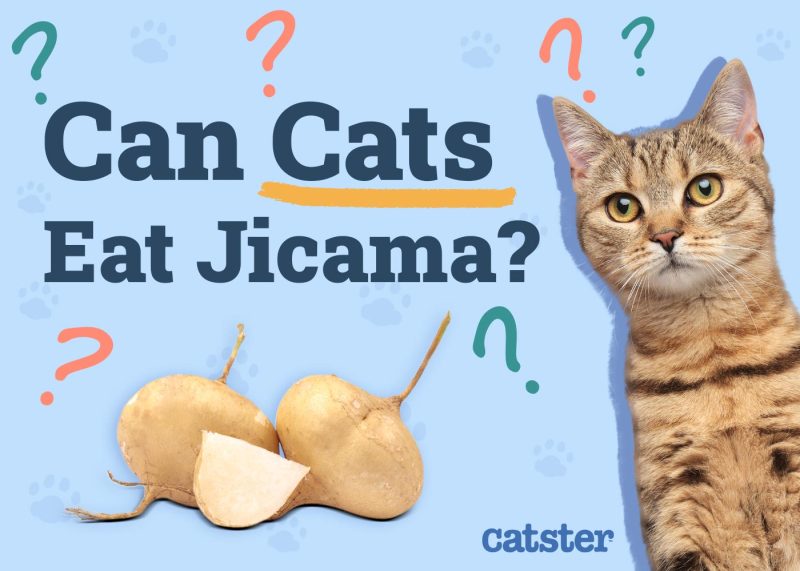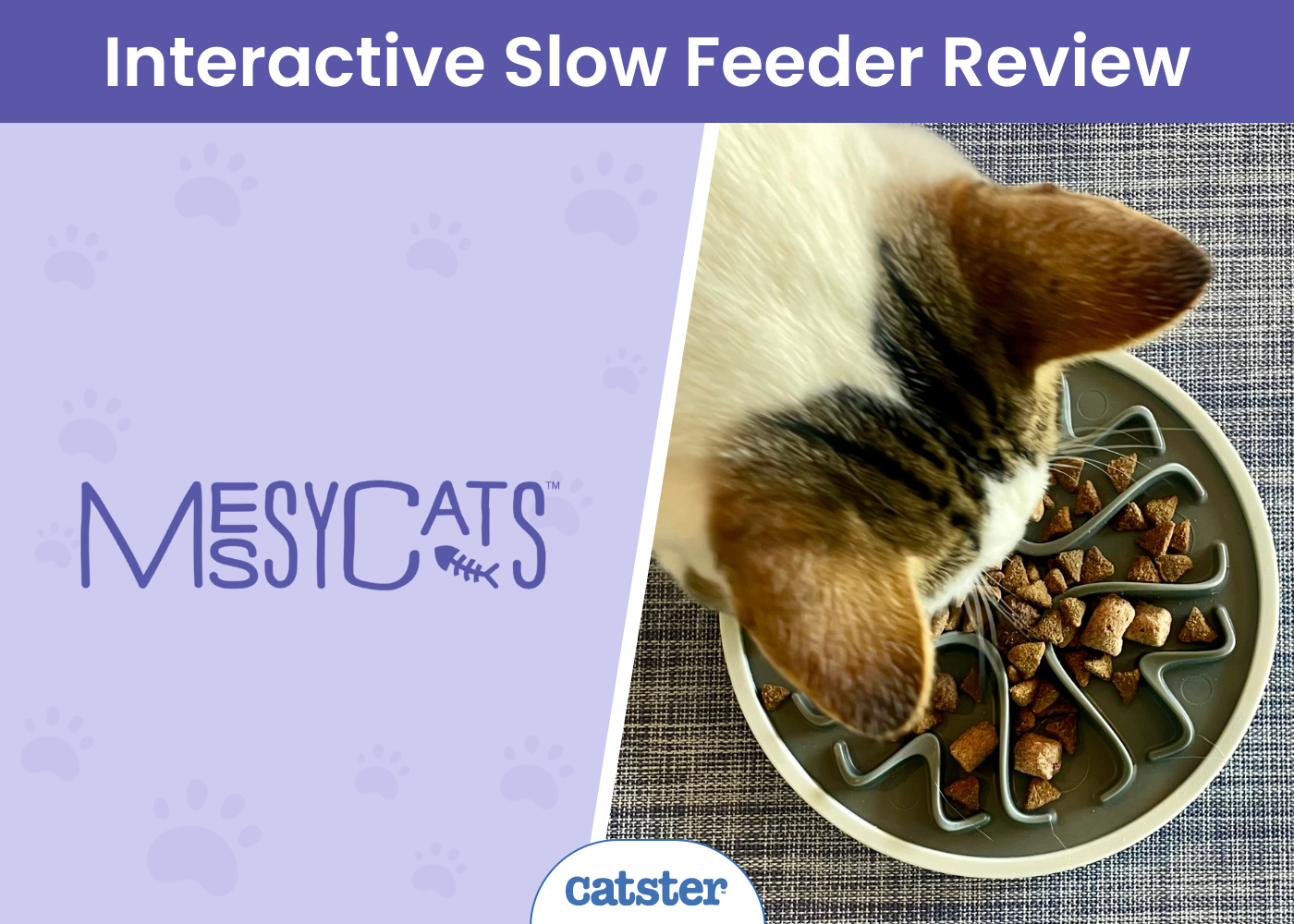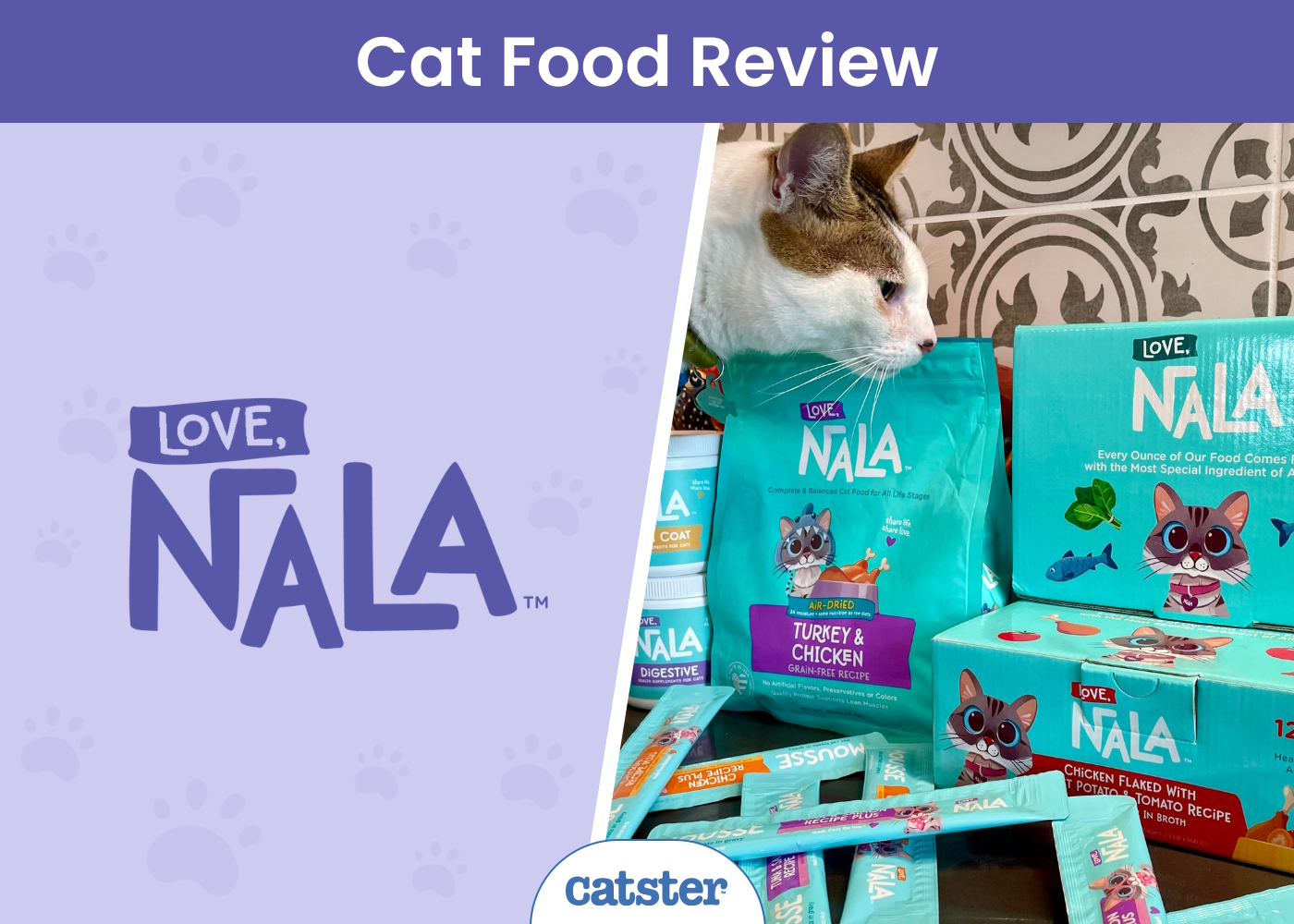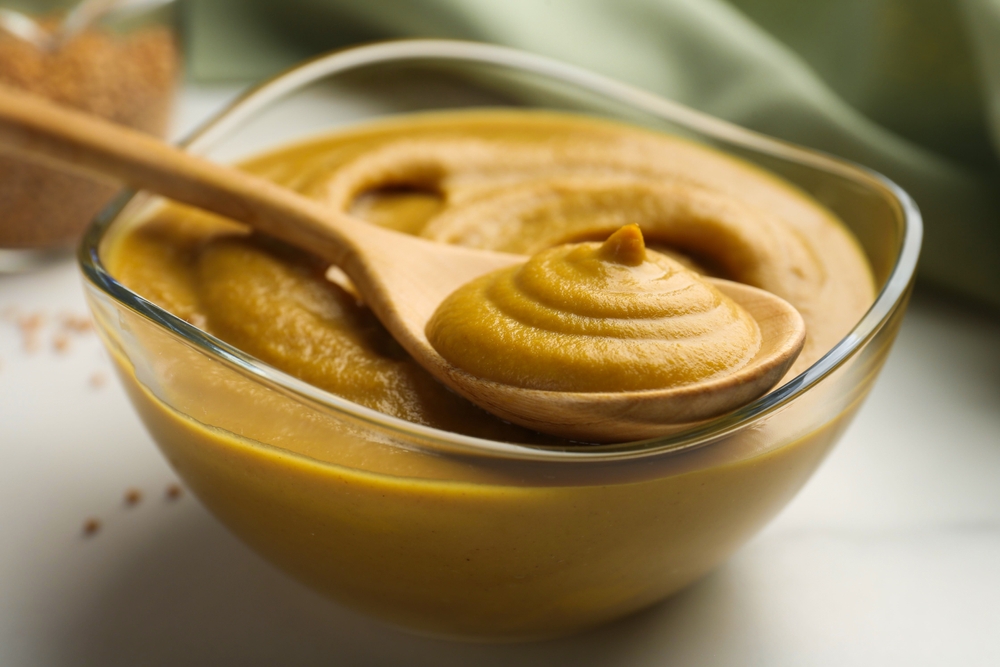Pet cats typically consume a commercial diet that meets all their nutritional requirements. However, cats are natural predators, so they go after small mammals and pests like cockroaches for sport and food. Cats sometimes also gravitate to plants, which they don’t need much of, if any at all, to meet their nutritional requirements.
You might notice that your kitty tries to grab bites of food while you chop veggies for a salad or stir-fry for dinner. So, what if they grab a piece of jicama off your cutting board or dinner plate and gobble it down? Can cats eat jicama? Is this root veggie healthy for cats? The answer is yes, cats can eat Jicama. Below, we’ll discuss what you need to know about feeding jicama to your feline.
Yes, Cats Can Eat Jicama
Jicama is a root vegetable that grows in the ground like a potato or yam. It is starchy, dense, and almost flavorless, which makes it a great addition to Asian meals and other cuisine. Jicama can be sliced into strips and deep-fried like French fries or cut into chunks and added to a salad. It can be cooked in stews, casseroles, and rice dishes too.
Cats can eat and digest jicama with no problems. However, it is crucial to remember that the root veggie should never be offered as a staple of a cat’s diet. It should be offered as a snack or supplement and only occasionally. Jicama will not provide the nutrients cats need to thrive, let alone survive.
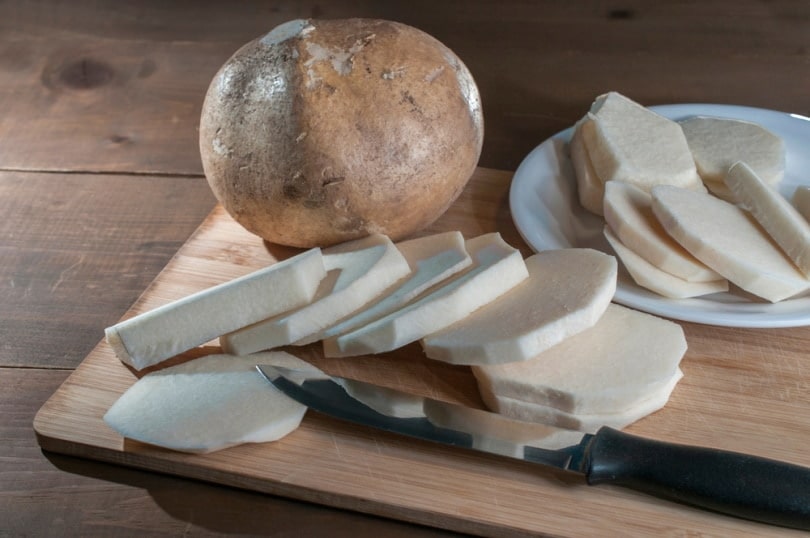
The Benefits of Jicama for Cats
Although cats don’t need jicama in their diets, it provides a few benefits. It’s full of antioxidants that your cat needs to fight off the development of cell damage and health problems like diabetes, heart disease, and even cancer. It’s also low in calories and sugar but contains a high amount of water, which will keep your kitty hydrated without contributing to problems like diabetes.
The Downside of Feeding Jicama to Cats
The flesh of a jicama is not dangerous for cats in any way. However, the skin and seeds contain rotenone, which can negatively affect your cat’s health. Overexposure to rotenone can result in symptoms such as nausea, indigestion, muscle tremors, vomiting, gastric pain, respiratory depression, and hypercapnia.
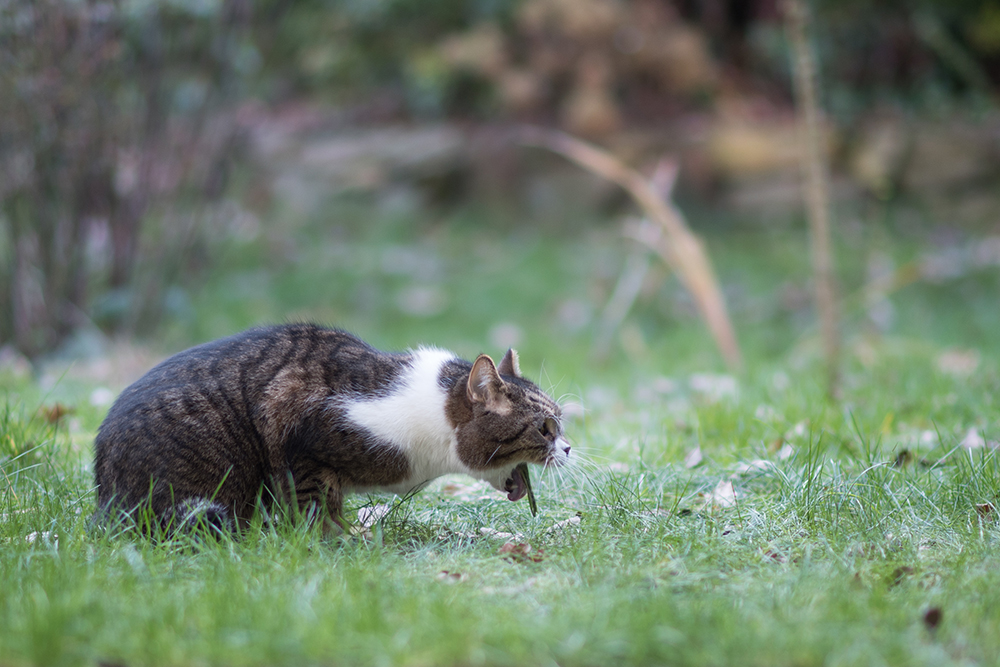
What Other Root Vegetables Can Cats Eat?
Cats can eat various types of root vegetables as supplements to their regular diet, provided they are properly and thoroughly cooked for optimal digestion. Some root veggies can be eaten raw if shredded or cut into small enough pieces.
For instance, yams, sweet potatoes, and regular potatoes should be thoroughly cooked, while jicama and carrots can be eaten raw by cats. In addition to these root veggies, your cat can consume:
- Sunchokes
- Beets
- Radishes
Cats can also eat various greens. Consider offering your cat lettuce, kale, spinach, collard greens, and cabbage as occasional snacks. Your cat might not like everything that you offer in terms of vegetables, so be patient and stick with the food they enjoy the most.
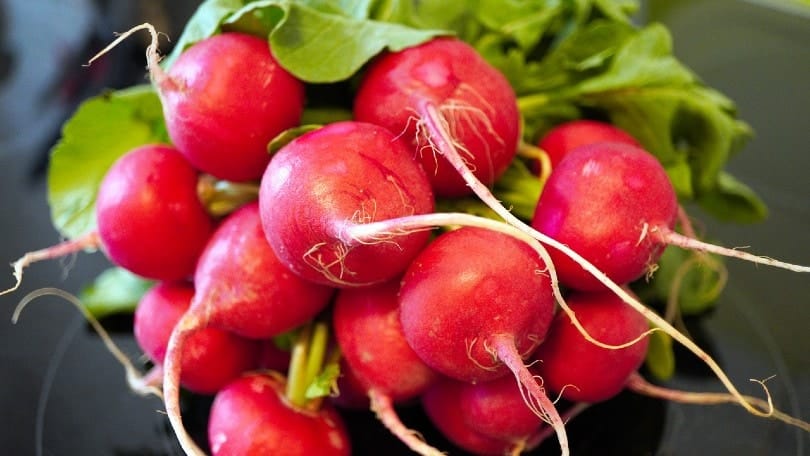
What a Cat Should Eat During Mealtime
Cats are obligate carnivores, so they require animal protein to thrive. Wild and stray cats can live solely off the animals they hunt, kill, and eat. However, in captivity, domestic cats rely on their owners to feed them. We must know that our cats can’t eat what we eat if we want them to live their best lives.
If you are providing your cat with a homemade diet, several vital nutrients must be included, such as animal protein, amino acids, fatty acids, vitamins, minerals, and water, to ensure that they get the nutrition that they need for a healthy body and mind.
If you provide your kitty with a commercial diet, it is vital to look for a formula that includes animal protein as the first ingredient and avoids ingredients that don’t have any nutritional value. When in doubt, contact your veterinarian for advice and recommendations.

If you need to speak with a vet but can’t get to one, head over to PangoVet. It’s an online service where you can talk to a vet online and get the personalized advice you need for your pet — all at an affordable price!
In Conclusion
Cats enjoy tasting different kinds of foods that they find while exploring their environment, so don’t be surprised if yours decides to munch on jicama. As long as no seeds or skin are consumed, there should be nothing to worry about. If your cat consumes jicama seeds or skin, contact your veterinarian as soon as possible.
- See Also: Can Cats Eat Ants? Health Advice & Risks

